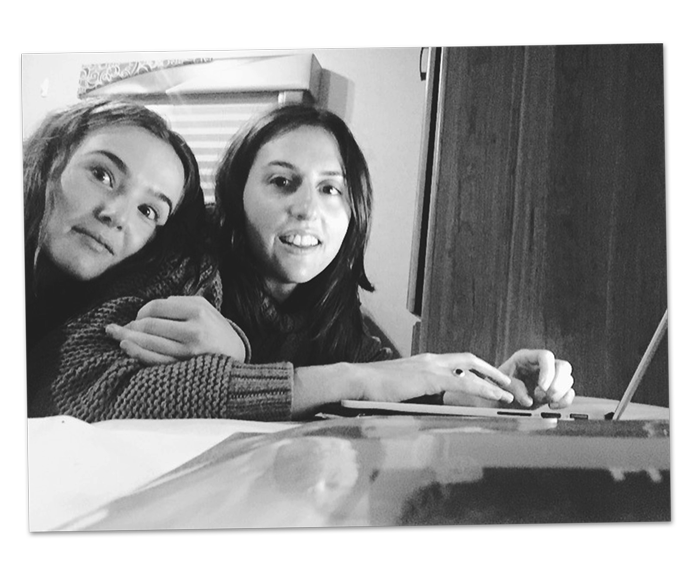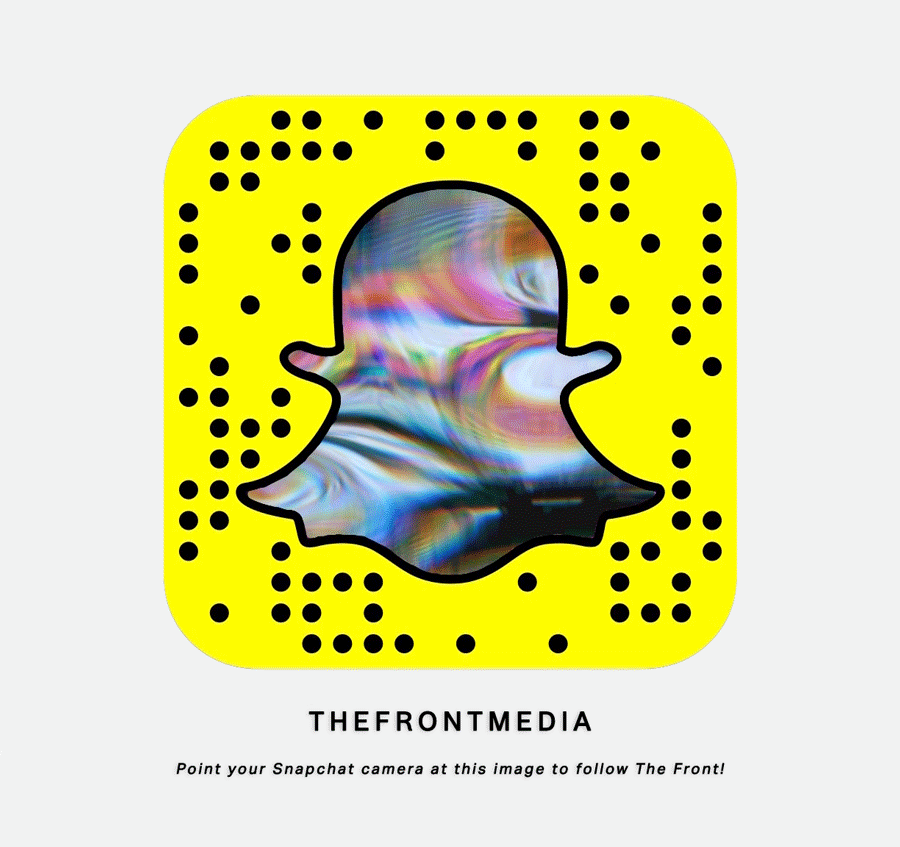Ry Russo-Young Gets Intimate on Female Ambition
Director Ry Russo-Young is a nice person. I mention this because, in an industry that rewards ego and showmanship, she has retained a sense of humility (and humanity) that’s exceedingly rare. We reach her by phone in LA halfway through a punishingly stacked press junket, and she apologizes for the noise in the background.
With Before I Fall, the seasoned indie director gets a taste of mainstream sexism.
By Laura Feinstein
Her sensitivity and ability to connect with strangers is, most likely, what made this indie darling into such an appealing choice to adapt the beloved YA novel Before I Fall [Lauren Oliver, 2010] for the big screen. Her first major motion picture, it’s the surprisingly dark story of a rich, popular girl who dies in a car accident and is forced to relive the day of her horrific death over and over again until she makes amends. Placed in the moody atmosphere of the Pacific Northwest and shot with sepia-tinged dread it’s Groundhog Day with a Twin Peaks patina, rolled into the teen pathos of The Sweet Hereafter, Atom Egoyan’s paean to small-town trauma. The film, which just debuted at Sundance, follows 2012’s Nobody Walks, a character study on creativity and bourgeois mating habits, starring Olivia Thirlby and John Krasinski. With Before I Fall, Ry is poised to rocket beyond the indie circuit. But first, she chats with us about critic trolls, underestimating “female” fiction, and why we need more women filmmakers.
THE FRONT: This series highlights pivotal female directors, including yourself and Agnes Varda, among others. I know it’s boilerplate, but we’ll never stop wondering what inspires the artists we love. Who are your muses?
RY RUSSO YOUNG:It’s interesting, I recently name-checked Agnes Varda in an interview. Growing up, I never saw female directors depicted on screen. Then I remembered when I was older seeing The Gleaners and I, a documentary Varda is also featured in. It meant a lot because she was just… so much of herself. Seeing a model of another female director at work was inspiring. Aside from Agnes, another hero is Kathryn Bigelow. A) because she won the Oscar, which was huge, but B) I found her films incredible on a filmmaking front. She’s a strong woman who’s been working in the Hollywood system for many, many years. Ava DuVernay is amazing as well. I’ve followed her films all along and been so inspired.
Movies were huge for me as a young person. I really turned to them for guidance. Part of why I wanted to make Before I Fall was that I wanted to create more images of complicated, female protagonists. To create the movie I had wanted to see as a young person.
You mentioned that you didn’t have many female directors to use as a career template. Yet you’ve still been able to find folks who supported your work early on. How has that influenced your ability to create?
I mean, it’s interesting. I don’t necessarily feel like that, but I’m glad it seems like it! I definitely had Sundance’s support early on. My second film, my second feature, was accepted into the Sundance Film Festival in the New Frontier section, which is more of an “art film” section. That was a huge career moment. To be included in something so prestigious, gaining that support, was so meaningful. It was very encouraging to feel that “I should continue this career,” even though there seemed to be no financial reward in it whatsoever, and it’s extremely challenging.
Totally.
I’ve always loved film. I’ve always wanted to pursue being a director. It feels like what I’m put on this earth to do. It’s a confluence of all the things I love. But without encouragement and a certain level of acceptance, it’s hard to keep going. It’s been everything having certain landmarks of support along the way. Matt Dentler, the former programmer at SXSW, pushed to have my short film included at SXSW, as well as my first feature, which won an award. It’s those small things, especially when you’re just starting out, that are really incredible.
You have a history of doing complex, emotional indie films. With your new project, you take that same sensibility and expand on it. But as you undoubtedly know, people see the press release and say, “A female director is making a young adult novel? That sounds really fluffy and superficial.”
I totally agree with you, and it’s been interesting seeing the critical response. A lot of white, middle-aged men who are critics…the tone of the reviews are, “I thought I was gonna hate this movie or I thought this movie’s totally not for me, and I found myself unexpectedly moved by it and I found it was actually profound.” But they still, at the end of the review, say, “I’m not the demographic for this movie, even though I loved it.” It’s been odd unpacking what sort of underlying assumptions and sexism is involved in that thinking.
I was offended for you reading some of those reviews.
I appreciate that. I think part of what appealed to me about the movie is that I felt “Yes it’s a story about a teenage girl” but also that the book, the script, the movie as a whole had the potential to tap into larger philosophical and emotional questions about “who you want to be before you die”. About self-awareness and self-determination, and what we can all, should all, be asking ourselves at any age—the limit of our souls and the journey the character made. I did not shy away from the depth, the profundity, and the darkness of the story.
It reminded me of the French TV series The Returned in terms of the moody setting, and people, mainly women, grappling with the meanings of death and life.
I actually haven’t seen it! The choice to make it look that way was because I felt the scenes were dark and angsty, the drama of the scenery a perfect visual metaphor for the main character’s existential dilemma. I was looking at Fincher and Cronenberg for inspiration. I love that show The Killing—its use of the Pacific Northwest, embracing the rain and the fog and the moodiness. There’s such an exhaustive process for me in terms of pulling images, the crossover genres, that this film intersects with.
I was going to ask about that–what was this process like for you?
It starts with thinking about the themes of the movie, its core, and boiling down the ideas behind it. From there, it’s making creative decisions based on what the film is truly about. It’s a long, explorative process that involves thousands and thousands of images. I get the themes worked out, and then edit to build a world… sequences and playlists get passed around. It’s a [rather involved] process that I’ve built after many years making movies.
In general, when you hear that someone’s made movies only sporadically, you don’t truly understand all the factors that went into them.
I think there’s a misconception about creative work, that it’s not a lengthy process. But we don’t understand how much hard work and thinking really goes on. It gets a little mystified. There’s this whole idea that a person just overnight makes something great. Usually, there’s a lot more rigor to it than we’d expect.
Are you already working on other projects?
I do have other projects I’m working on. I don’t know yet which ones they are going to make it to movie—I actually won’t know until I’m on set shooting. In terms of how it’ll all come together, there’s a lot of factors to make a movie happen that I don’t control—from financing to casting. But there’s definitely a few other movies that are still in the works.
Do you think this might be a new era for you in terms of “going more mainstream”?
I mean, I would love to continue making larger movies. Sometimes I feel like women with ambitions are discouraged from vocalizing this. We think “women don’t want to make big films.” Let me be clear, I would like to win an Oscar. (Laughs.) I’m definitely interested in speaking to a very wide audience. And it doesn’t mean I won’t want to make an indie film again. I want to do it all! But I need to be hired for those. That’s the whole thing about being a director. You need to be given the opportunity.
The film explores what many wish they could do before they die. Is there anything, besides an Oscar, you’d like to accomplish?
Besides an Oscar? I wanna love deeply. I really do! I just had a son four months ago.
Congrats!
Thanks! But you know, I wanna feel the full throttle of human emotion—live life to the fullest. I feel like one of the reasons I love making movies so much is because it’s so hard. It’s such a challenge both mentally and physically, every single part along the way. Most of the time, I use 70 percent of my brain, but when I’m directing I have to use 99 percent. And I love that! I’m addicted. That’s how I wanna live my life. To continue to grow and challenge. That relates to living life to the fullest—the full emotional spectrum. Nietzsche’s perspective was to embrace the pain. That pain is not a bad thing, and you should run into it. I feel comfort in that statement—I feel like the pain is part of life, and that can actually be a beautiful thing.
[This interview has been edited for length and clarity.]



